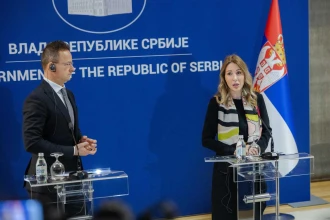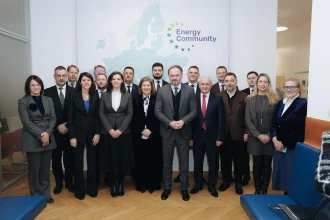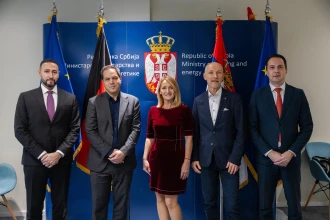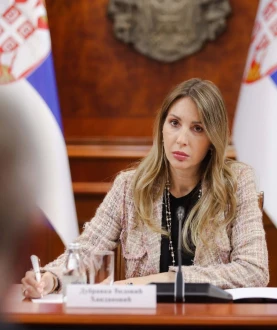Minister of Mining and Energy, Dubravka Djedović Handanović, stated today in Athens that Serbia plans to continue working on connecting with its neighbouring countries in the gas, electricity transmission and oil transport sectors. This collaboration is crucial for enhancing energy security and fostering further progress in the energy sector.
Djedović Handanović: There is no progress in energy sector without regional connectivity
Djedović Handanović is participating in the Ministerial meeting of the High-Level Group on Energy Connectivity of Central and South-Eastern Europe (CESEC) in Athens, where ministers from the countries of Central and South-Eastern Europe are in attendance.
"The energy security of the Western Balkans is at the same time the energy security of Europe and the main focus is on improving connectivity to ensure a more secure energy supply through infrastructure enhancements and the transformation of the electricity sector, which is a priority in the energy transition. Regarding Serbia, discussions have centred on the construction of pumped storage hydro power plants, primarily PSHPP Bistrica. With Romania, there are intentions to further strengthen the connection, because we are planning to expand the capacity of the hydroelectric power plants on Djerdap, and potentially construct a new pumped storage hydro power plant Djerdap 3. Regional connectivity is a key concern in order to facilitate the integration of newly built renewable energy capacities into the grid," said the Minister.
She emphasized that following the Serbia-Bulgaria gas interconnection, Serbia will prioritize connections with North Macedonia and Romania to access additional gas sources if needed, while the priority in the oil sector is the construction of a new oil pipeline between Serbia and Hungary.
"We also discussed hydrogen as an energy source of the future, for which we are preparing by adopting necessary regulations for the development of hydrogen, as well as through discussions about potential production of this energy source within our industrial sector," said Djedović Handanović.
Djedović Handanović also emphasized the plans for the development of the transmission network.
"We will double our transmission capacity with Hungary, and in the future with Bulgaria as well, through the construction of the Central-Balkan Corridor. Upon completion of the Trans-Balkan Corridor, we will establish better connections with Montenegro, Bosnia and Herzegovina, Romania and Italy," she added.
She emphasized that Serbia is recognized as a leader in the green energy transition within the Energy Community, due to the progress made in the previous year in decarbonisation and the implementation of energy sector reforms.
"The Connection with EU member states, as well as with other neighbouring countries, digitization, and timely construction of cross-border energy infrastructure are essential for ensuring supply stability. This requires investments, and we anticipate strong support from international partners and the EU on this path. Serbia is strengthening capacities in both the public and private sectors because only through synergy can we achieve the goals we have set, such as reaching 45% of electricity production from RES until 2030," she stated.
On the sidelines of the Ministerial meeting, the Minister of Mining and Energy spoke with European Commissioner for Energy, Kadri Simson, who praised Serbia's visible progress in the energy sector and the efficient implementation of projects in the field of energy, particularly the completion of the construction of the Serbia-Bulgaria Gas Interconnector and the successful auction process for the allocation of market premiums for renewable energy sources, which was fully digitized and complied with EU standards.


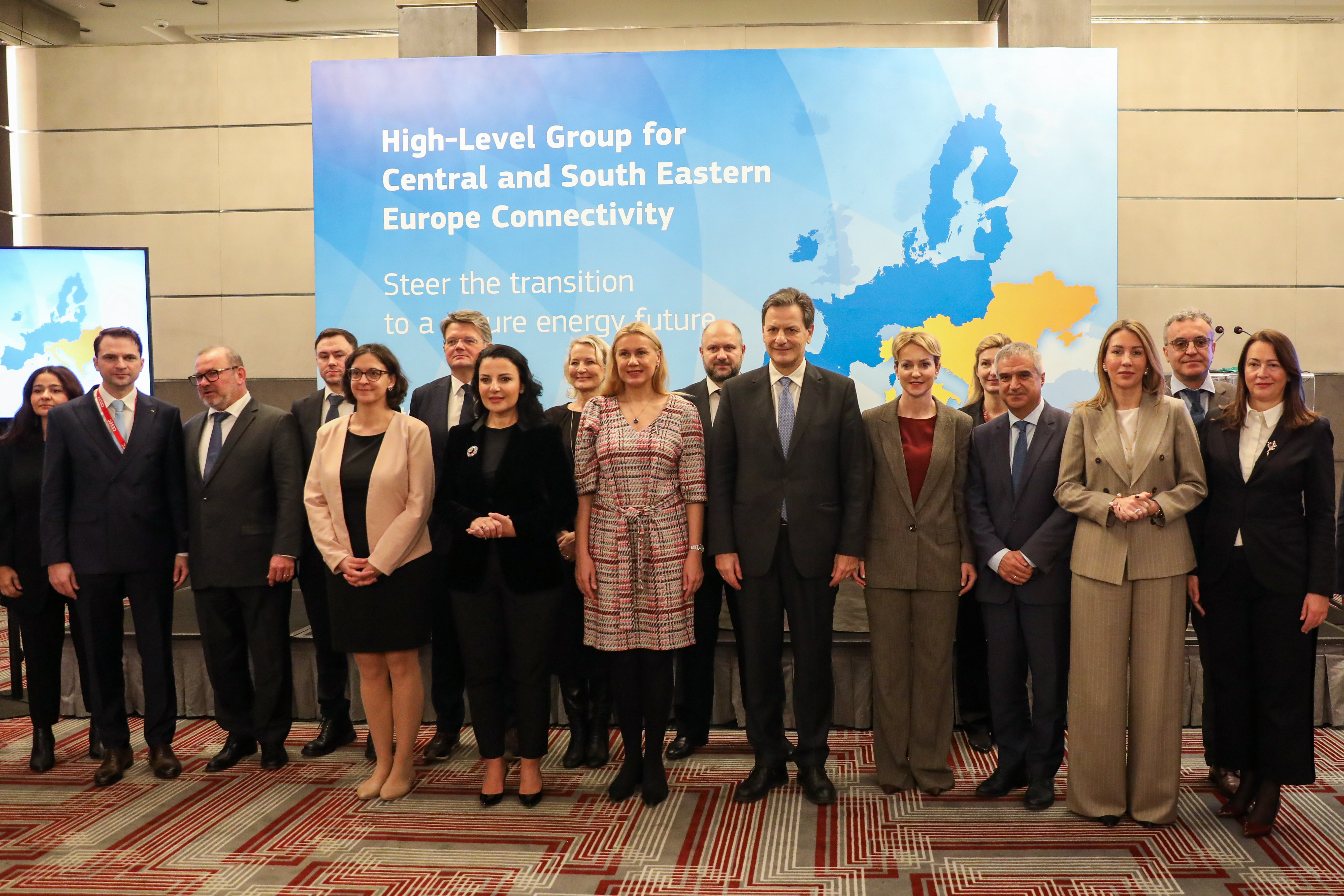
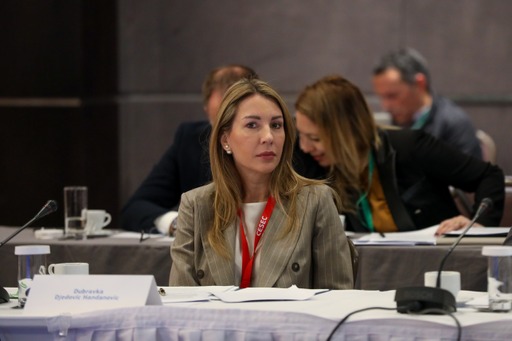
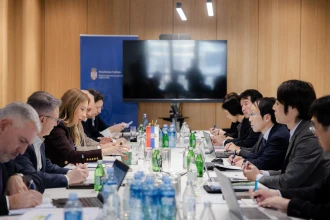
.webp)
